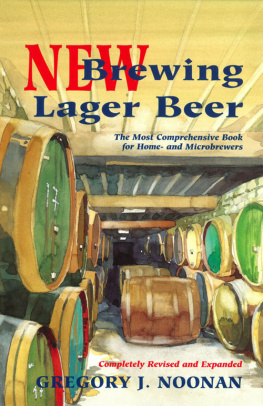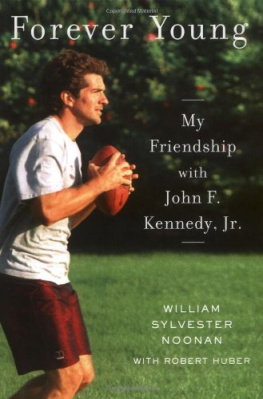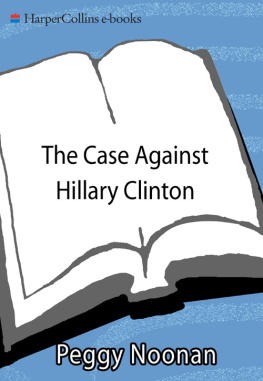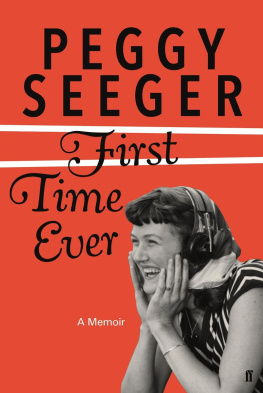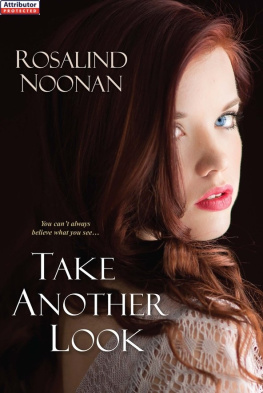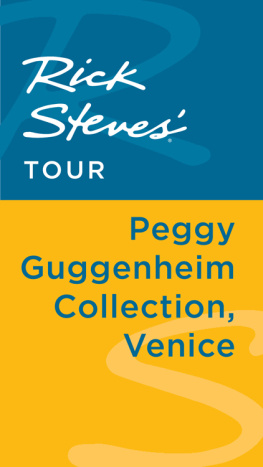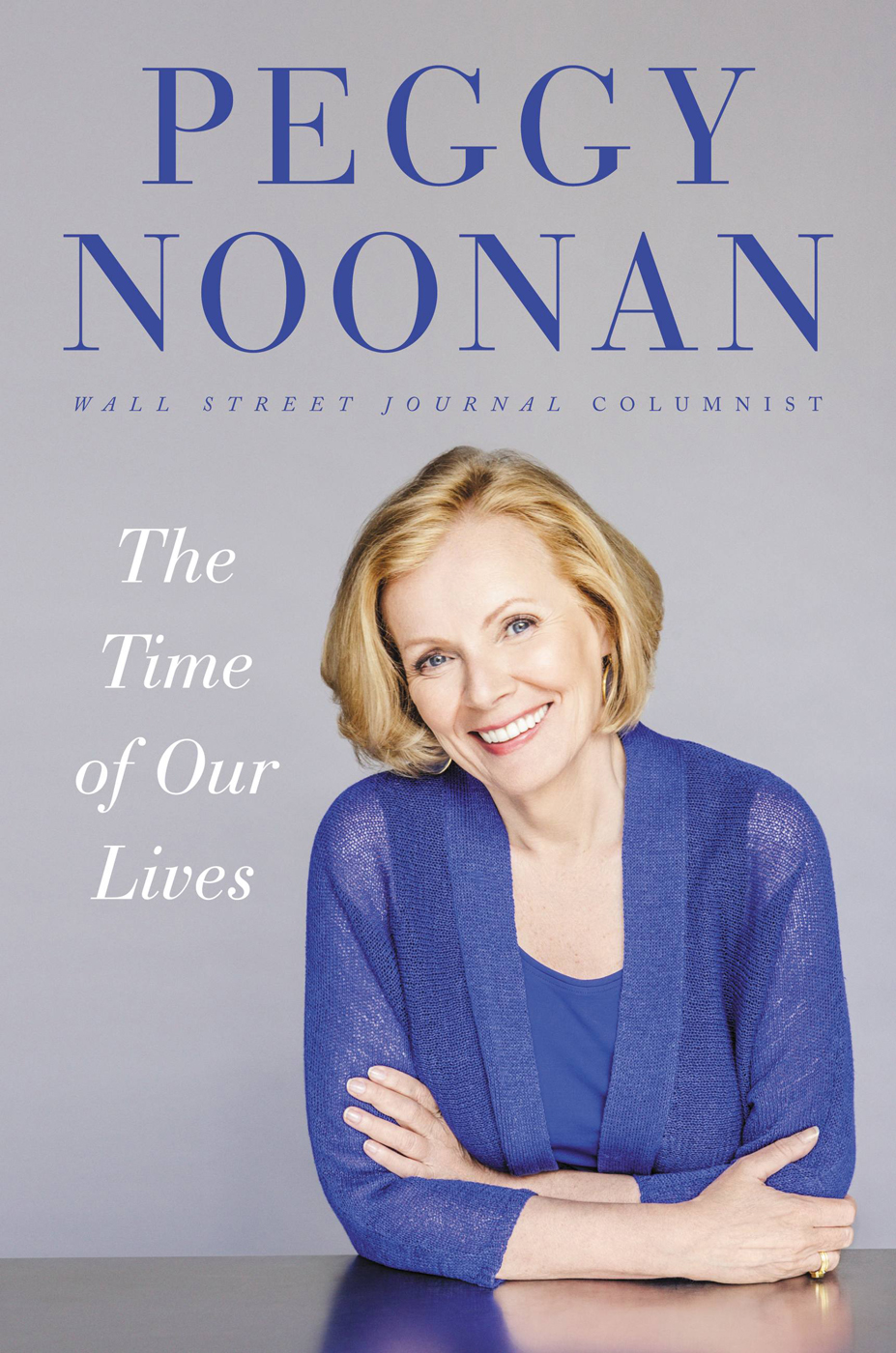Thank you for buying this ebook, published by HachetteDigital.
To receive special offers, bonus content, and news about ourlatest ebooks and apps, sign up for our newsletters.
Copyright 2015 by Peggy Noonan
Cover design by Catherine Casalino
Cover photography by Melanie Dunea
Cover copyright 2015 by Hachette Book Group, Inc.
What the Intrepid Said (August 6, 1982); The Royal Wedding (July 28, 1981); and Tennessee Williams Died a Week Ago Today (March 4, 1983) reprinted with permission of CBS NEWS.
All rights reserved. In accordance with the U.S. Copyright Act of 1976, the scanning, uploading, and electronic sharing of any part of this book without the permission of the publisher constitute unlawful piracy and theft of the authors intellectual property. If you would like to use material from the book (other than for review purposes), prior written permission must be obtained by contacting the publisher at permissions@hbgusa.com. Thank you for your support of the authors rights.
Twelve
Hachette Book Group
1290 Avenue of the Americas, New York, NY 10104
hachettebookgroup.com
twitter.com/grandcentralpub
First ebook edition: November 2015
Twelve is an imprint of Grand Central Publishing.
The Twelve name and logo are trademarks of Hachette Book Group, Inc.
The Hachette Speakers Bureau provides a wide range of authors for speaking events. To find out more, go to www.hachettespeakersbureau.com or call (866) 376-6591.
The publisher is not responsible for websites (or their content) that are not owned by the publisher.
ISBN 978-1-4555-6312-8
E3
In memory of Bill Safire, Bob Bartley, and Jane Jane
The title of this book is derived from an observation of the writer Laurens van der Post: We live not only our own lives but, whether we know it or not, also the life of our time. This is an orienting thought: We are part of the era in which we live, we must fully see this and pitch in. This is often on my mind. So these days is the instruction of Pope John XXIII: Do not walk through time without leaving worthy evidence of your passage. I saw the quote on the bottom of a street pamphlet when I went to Rome in April 2014 to witness his canonization. I wrote it down on an envelope in my purse, and its taped now to my office door.
I think thats what all writers are trying to do, leave worthy evidence of their passage. Anyway, these quotes sum up where I am in terms of my work and the attitudes I bring to it.
* * *
Here are some of the times of my life:
My professional life so far has consisted in three parts. I graduated college in 1974, having begun Fairleigh Dickinson University in Rutherford, New Jersey, as a night student and then attending during the day; I was 23 when I graduated. A few months later I began my career at a CBS-owned radio station in Boston, and in 1977 I joined CBS News in New York. In both jobs I functioned mostly as a news gatherer (reporter is too grand a term and was not in any case my title), editor and producer of network radio news broadcasts, and writer of editorials and essays.
In the second part, in the 1980s, I worked in the White House of Ronald Reagan, where I was a speechwriter for the president and, in the decade following, a writer of books and freelance op-ed pieces and essays. The third part began in 2000, when I became a columnist for the Wall Street Journal. The parts have some bleedI have written books and essays during my time at the Journalbut hold in terms of general outline. In 2014 a friend with whom I often discuss our work urged me to gather together essays and columns Id written the past 25 years and put the ones I like best in a collection. And so this book.
You will find in it a bit of walking the hallowed halls of the White House, the plainer but still august halls of CBS News when, as we felt, it was the greatest of the three American news networks, and the wounded streets of New York during 9/11 and after.
* * *
Putting this all together involved hauling from closets and warehouses big white storage boxes that contained what Id written and rereading every piece. In time I had three huge pilesthe yes pile, which was small, the no pile, which was larger, and the maybe pile, which was growing. My editor and friends and I sifted, winnowed and culled.
Rereading what youve written over the years is an interesting experience. You find things you got wrong (theyre somehow never a surpriseyou always remember what you got wrong), things you wish you could rethink and rewrite, mistakes of tone and tenor. You find things that seem as pertinent now as the day they were published, and things that bring tears to your eyes like the tears you had when you wrote them. You find things youd forgotten that in retrospect were prescient: In a Wall Street Journal column Id wondered if a man named Osama bin Laden would grimly pop up in the background as Bill Clinton gave his farewell speech in 2000. I was surprised there were only a few pieces Id forgottenI thought there would be moreand surprised I felt attached to so many. That said exactly what I wanted to say, God, the reaction, I had a feeling of failure after that one.
As I sifted I discovered some preoccupations I didnt know I hadwith British politics and culture, for instance. Theres a steady theme of the importance of work itself in the shaping of the meaning of a life. There were more pieces on baseball than I would have guessed. I saw preoccupations of which I am aware: with America, with its culture and with the nature and importance of political leadership. There was a lot on the excitement of politics and the meaning of the greatness game.
Going through the boxes also gave me in a more acute way the sense of an arc. In the CBS boxes I saw scripts that reminded me I had been taught and mentored by the greatest broadcast news journalists of the 20th century. The boxes containing essays I had written in or about the White House reminded me in some new, fresh way of my good fortune in working for one of the greatest presidents of the 20th century, whom Republicans and conservatives see as the last unambiguously successful president of the modern era. Other boxes contained 15 years of work at one of the greatest daily newspapers on the planet, the Wall Street Journal.
Part of how I make my living is making speeches, and sometimes in introductions I am called a pioneer. This makes me uncomfortable for a number of reasons, including the fact that pioneer sounds pretty old. And yet in those boxes there was a sense of constantly being in pioneer territorypart of the first, great wave of women to enter modern broadcast journalism in the 1970s, among the first to enter politics and the White House in the 1980s, and to write about the experience. Then, in 2000, I joined a pioneer generation of Internet columnists writing not for paper but for screens.
* * *
Over some months I put aside the pieces I liked most, cut and cut again. The last cut is this book.



